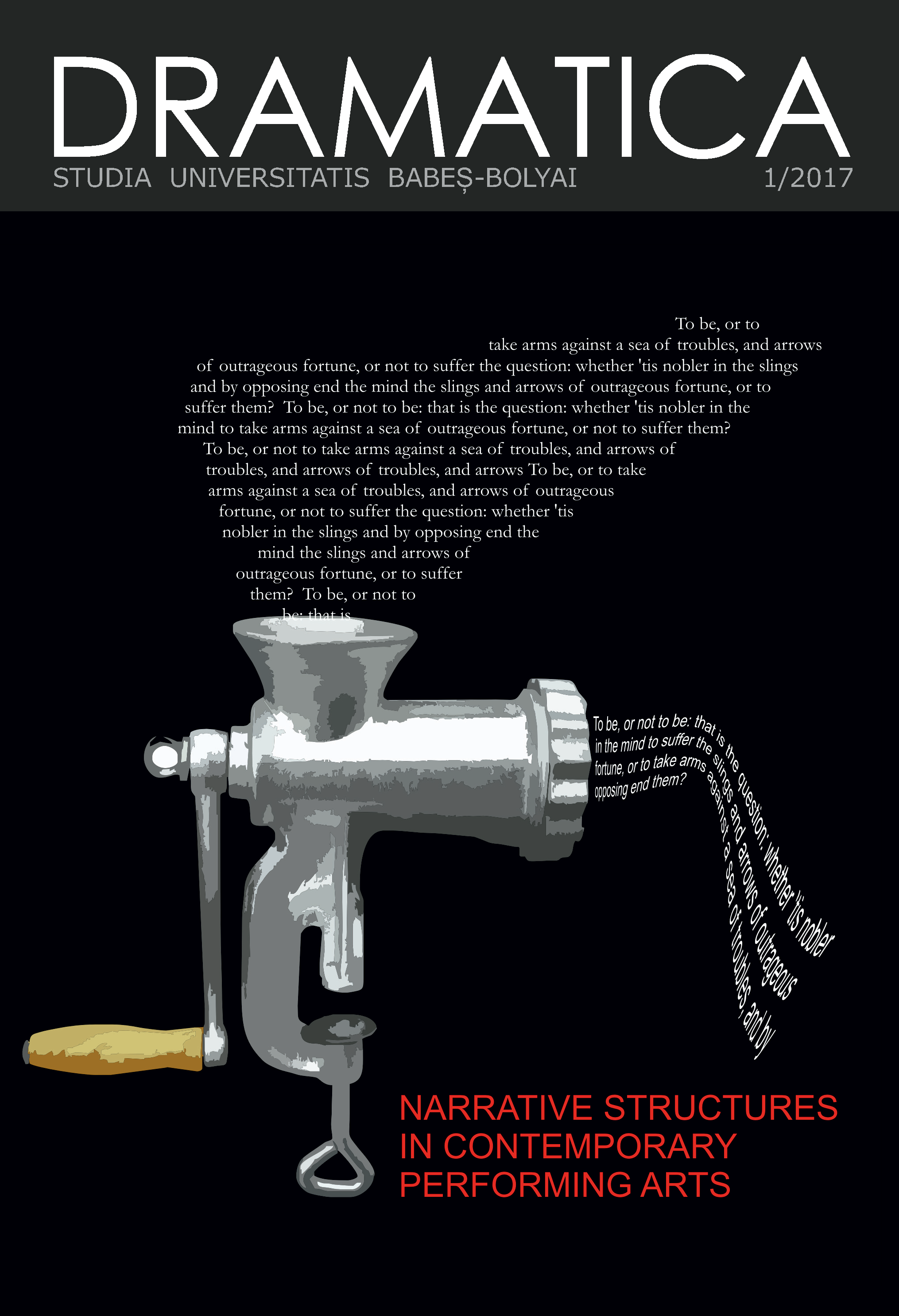The Cultural Afterlives of DADA
DOI:
https://doi.org/10.24193/subbdrama.2017.1.09Keywords:
Dada, Christianity, Dandyism, Levant, Tzara arde…, approximationAbstract
With his Dadaists friends, Tzara constructed in Dada an art based, like religion, on an interior play of conflicting emotions, soulful contradictions, and haunting echoes moving in auditory progression toward today’s approximate culture. Beyond reinforced origins that incorporate such diverse influences as his native village or the fin-de-siècle Dandies, Tzara’s approximate aesthetic conjures the self-separation of artistic sensibility that once consolidated the community of the early saints. The play Tzara arde şi Dada se piaptănă: Fantoma de la Elsinore (Every Tzara Has His Dada: The Ghost of Elsinore) by Ion Pop, Ștefana and Ioan Pop-Curșeu is an illustrative example of the cultural afterlives of Dada.
References
Anderson, Mark M. Kafka’s Clothes: Ornament and Aestheticism in the Habsburg Fin de Siècle, New York: Clarendon Press, 1992. 74
Ball, Hugo. Journal, 30 June 1915, 60. 9
Baudelaire, Charles. The Painter of Modern Life and Other Essays. trans. and ed. J. Mayne. London: Phaidon Press, 1964.
Cernatescu Radu, “Mistica dadaismului,” http://radu-cernatescu.blogspot.com/. May 1, 2008.
Foucault, Michel. “Society Must Be Defended”: Lectures at the Collège de France, 1975-1976, trans. David Macey.
Lupton, Julia. Thinking with Shakespeare: Essays on Politics and Life. Chicago: Chicago University Press, 2011, 89-91.
Motherwell, Robert, ed. The Dada Painters and Poets: An Anthology, New York: Wittenborn, Schultz, 1951. 22
Patapievici, Horia-Roman. Partea nevăzută decide totul, Bucharest: Humanitas, 2015. 127-167.
Stuparu Daniel, ed. Manifestul colectiv, “Dada soulève tous” (1921), in 19:24.
Downloads
Published
How to Cite
Issue
Section
License
Copyright (c) 2017 Studia Universitatis Babeș-Bolyai Dramatica

This work is licensed under a Creative Commons Attribution-NonCommercial-NoDerivatives 4.0 International License.


